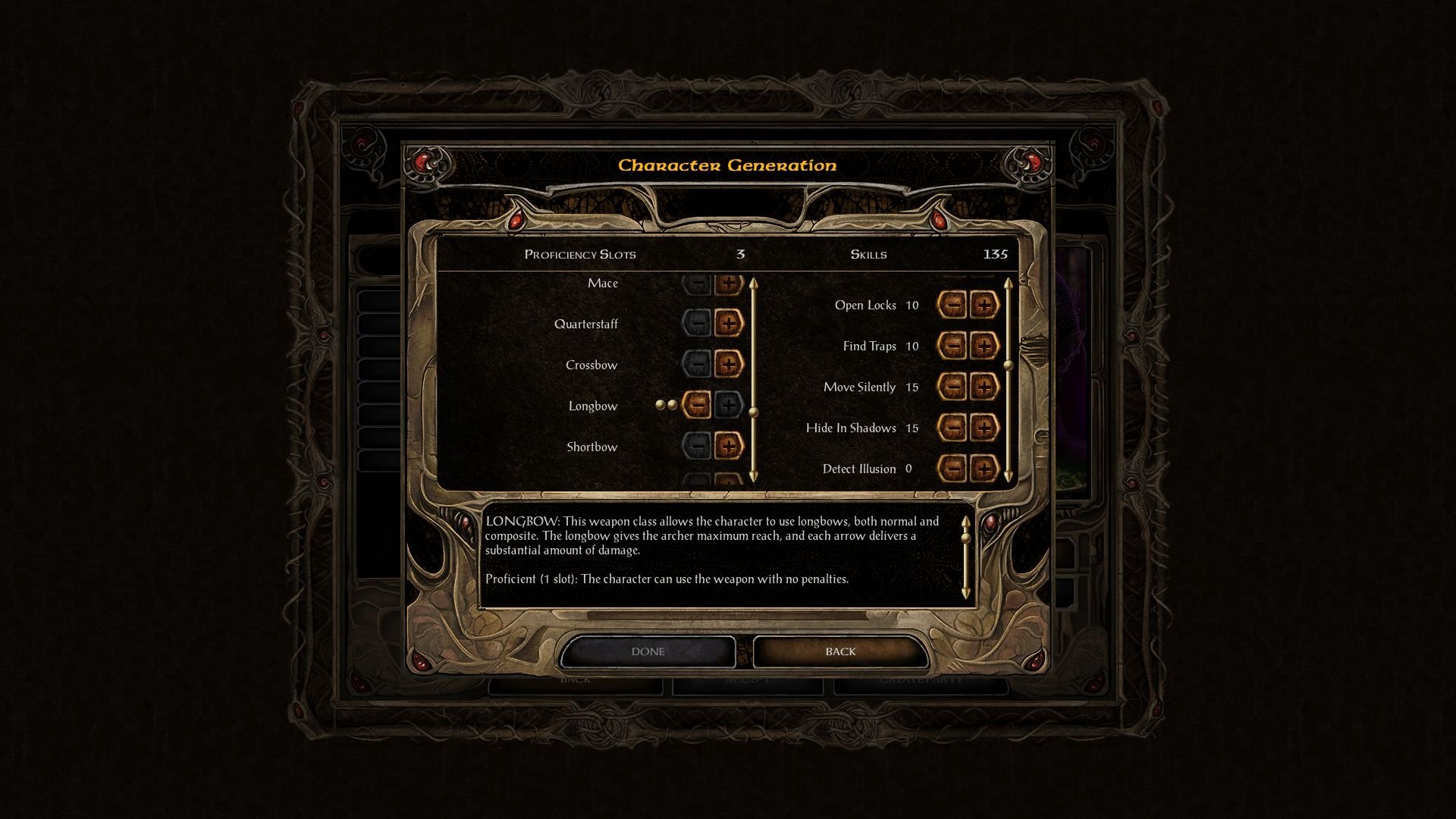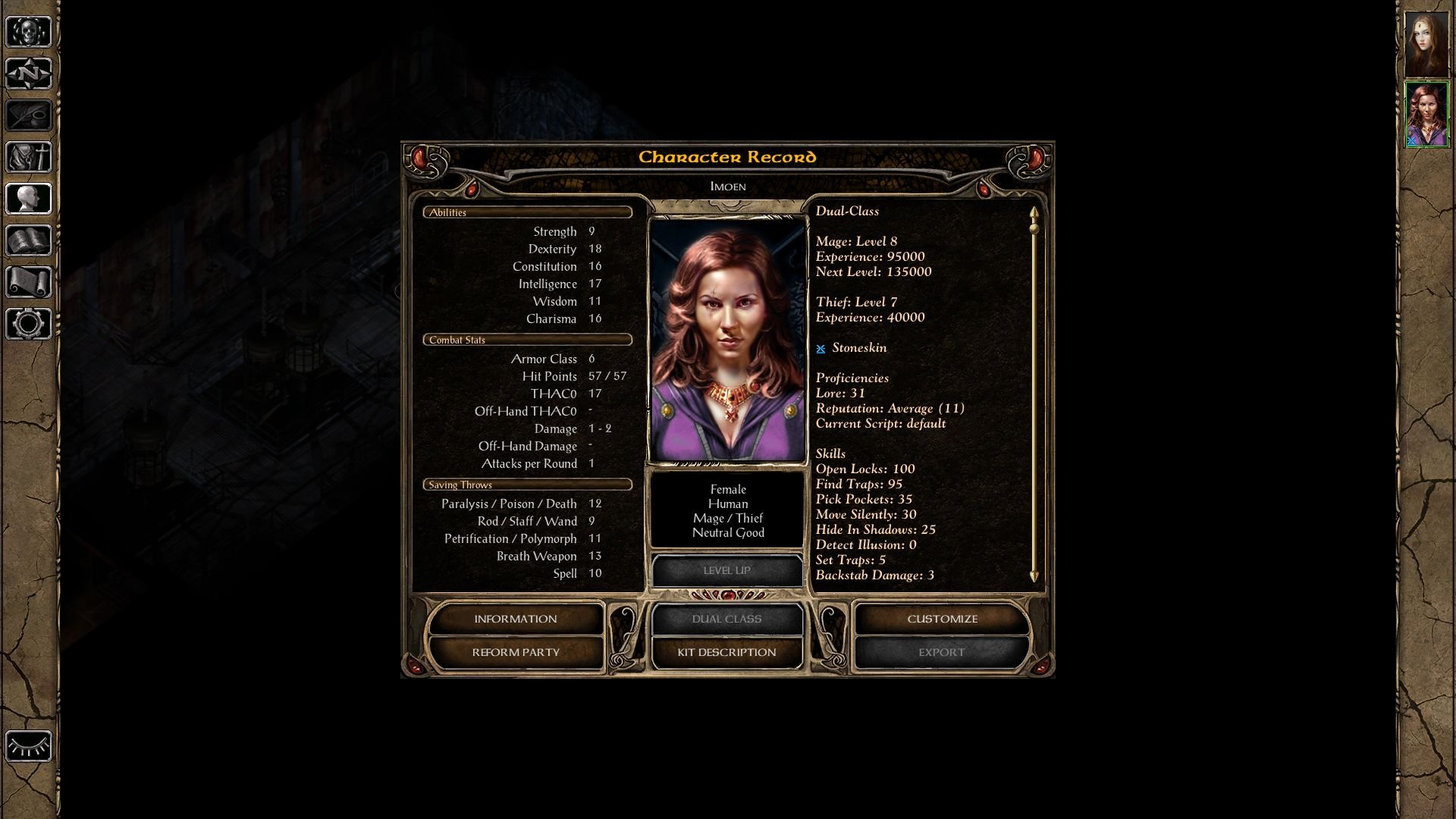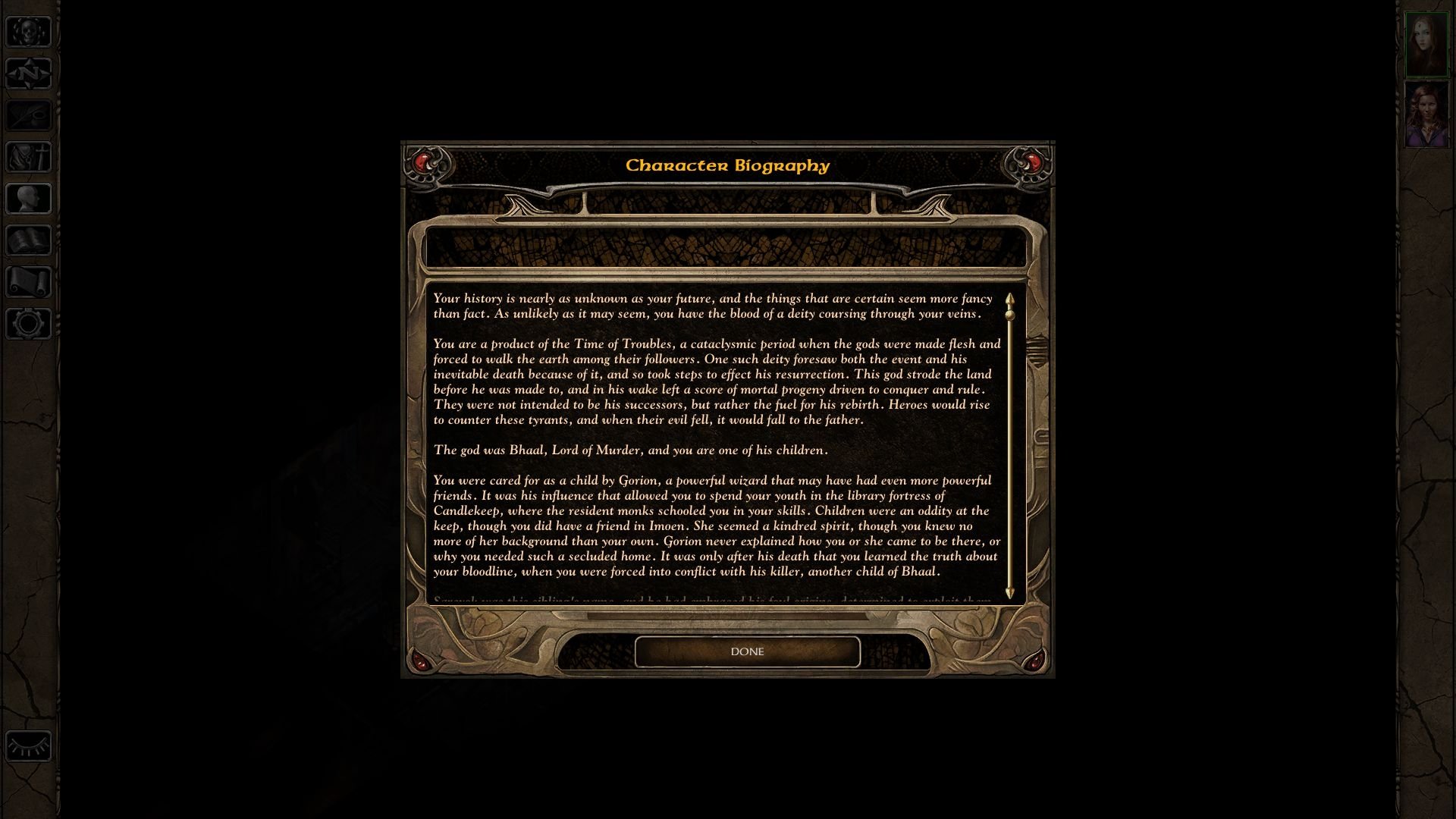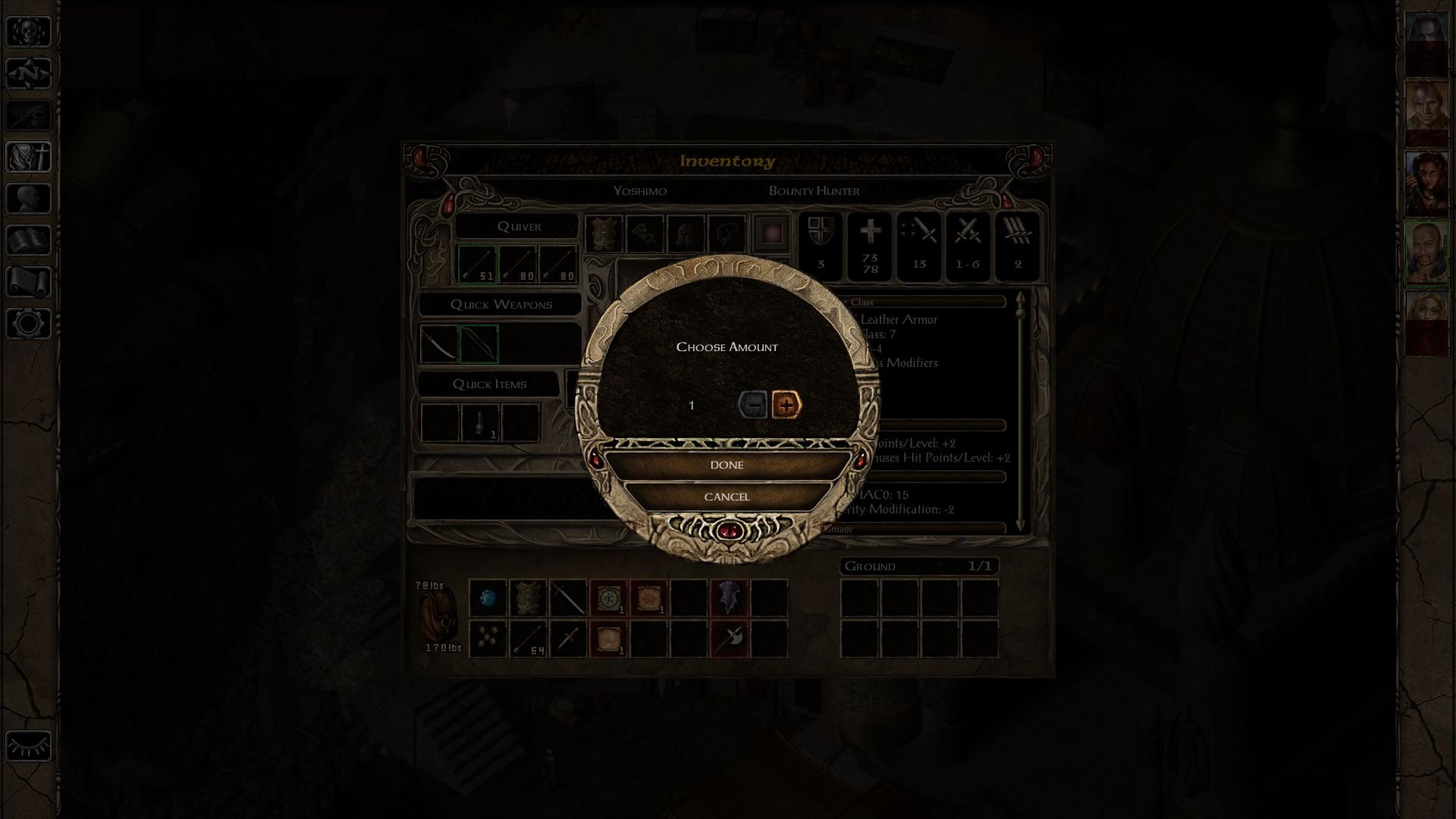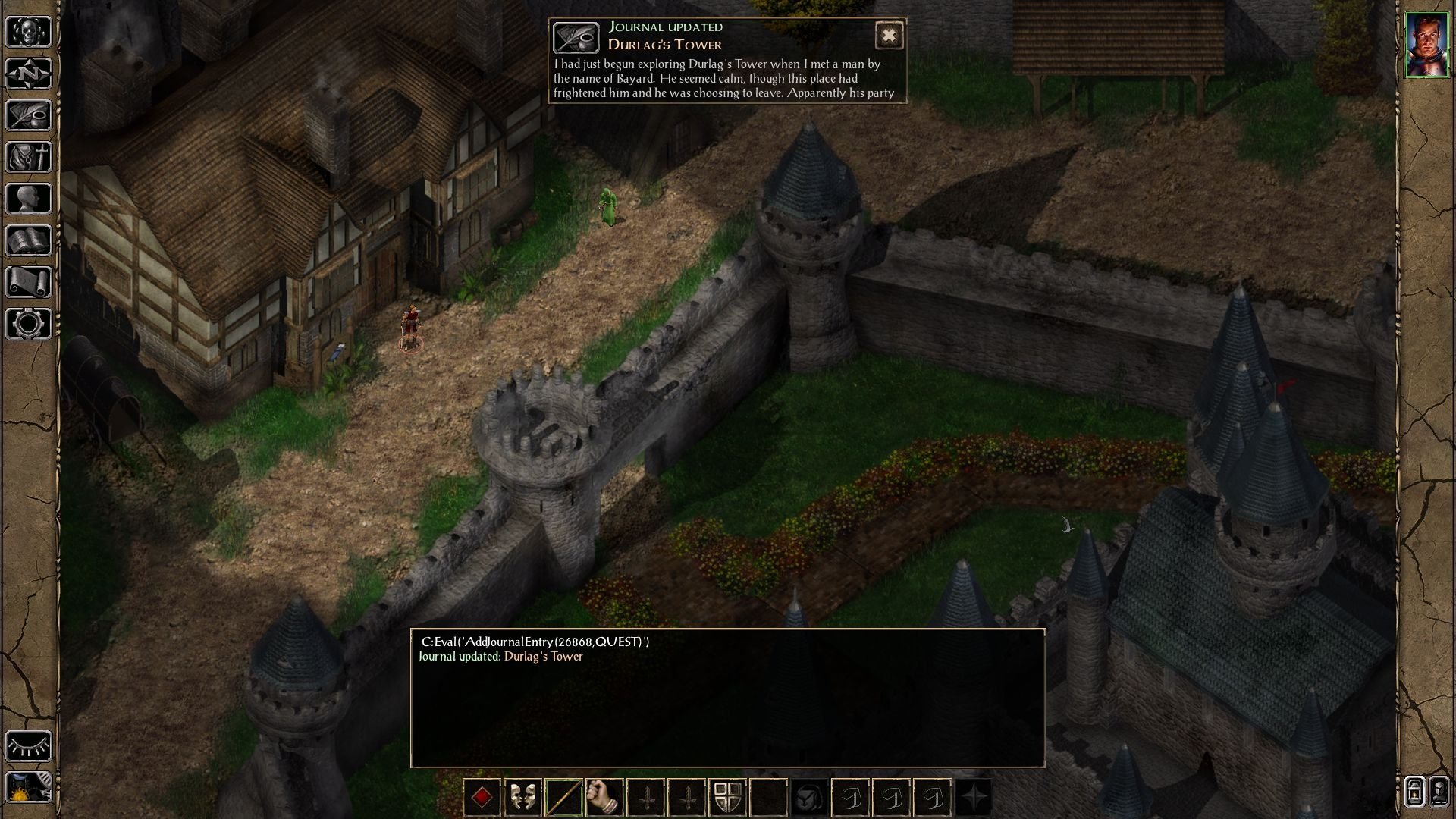MakeGlobal(), as I understand it, only enables travel between areas with actions like the LUAs. It doesn't by itself transport anybody anywhere without a separate command in the scripts. But suppose that regular enemies are made global and have scripts telling them to, say, jump to Player1. Never mind now where to insert the scripts etc. Could they hike between maps this way? I think that they could not initiate it if they were abandoned in an area by the entire party - then nothing in that area would load. But I've seen that if a party member is teleported somewhere alone, say, using the console, he causes the area to "become alive." It is now part of the active gameplay. Enemies gather up, and there seems to be no obstacle to their taking advantage and hopping between areas also, even out of this one. Script Davaeorn to jump to Player1 upon seeing a PC, then teleport Player3 to the Cloakwood mine, and the wizard will leave his area (if made global). Am I right about this?
The next question: if a player character can be made to "activate" an area with his presence, what about friendlies carrying opcode 248, Clear Fog of War (Wizard Eye)? If they were teleported to another area or just left there, could they serve to switch it on, so to speak? Has anybody tried this? Of course, the question here is partly how to flip the view to those creatures after they get whisked off and can no longer be clicked on. One of the new Torment opcodes, 349 I think, supposedly moves the view to the spell target, but I don't know if that would work between areas, and anyway those effects are no good for the other games. Maybe people familiar with cutscenes can tell how to switch the screen someplace away from the party.
Related to this: MakeGlobal() should in most cases be inferior to MakeGlobalOverride(), because there is no reason to create multiple entries for the same creature with a script name. But what about creatures without? Recently I learned that deaths of creatures without script names get recorded on the collective tombstone of one huge death variable as NONE. Deaths of creatures specially given the NONE script name go on the same record. Well, what will happen if a nameless creature is subjected to MakeGlobal()? Is it going to get recorded, and as what? And what if several ordinaries, who in the eyes of the engine have either no name at all or NONE, get recorded with instances of MakeGlobal(), without overriding? Won't each entry for NONE (if that is how they get recorded) be unique?
It is possible that creatures without script names only get recorded as NONE in their common death variable, and otherwise MakeGlobal() does not work without a "proper" script name. If so, is there any reason not to patch all nameless things with the script name that reads NONE? It won't do any harm, might even be useful for miscellaneous calls, such as when you need to spawn a dozen skeletons, one by one, and order them along. You don't want to give each one a unique script name and you could do without even a group name just for these bonies, like CUSTOM_SKELETON or whatever. With a group name you could, of course, command them in the order of appearance, the name changing reference as another skeleton pops up. But why bother, if you can just use the script name NONE? Spawn one skeleton, and no matter how many ordinaries of all kinds, also called NONE, may have wandered in the area already, this name will now link to the latest NONE in the doorway - your skeleton. Then just keep spawning skeletons and giving your commands to NONE. And the next time you need to spawn another group somewhere else, or an individual standard creature, just repeat this. Convenient. So dubbing ordinaries NONE may have these extra uses. But mainly it should, very likely, work for the purposes of making everyone and his mother global, because it is an actual string.
If this NONE-globalling works, if all entries so recorded turn out to be unique and there is some way to switch the view to an area away from the party (that's the big one), for the locals to activate their jump drives, we'd be halfway towards all sorts of different dynamics: monster excursions, Flaming First mercenaries following the party inside Durlag's Tower, winter wolves descending to Nashkel or slimes bubbling up. I know I would enjoy a more simultaneous open-map gameplay along the lines of Jagged Alliance 2 rather than being limited to one area at a time. Not that it is worse, if anything, focus and gradual exploration are more mysterious, but we have played the games to death the old way.
The next question: if a player character can be made to "activate" an area with his presence, what about friendlies carrying opcode 248, Clear Fog of War (Wizard Eye)? If they were teleported to another area or just left there, could they serve to switch it on, so to speak? Has anybody tried this? Of course, the question here is partly how to flip the view to those creatures after they get whisked off and can no longer be clicked on. One of the new Torment opcodes, 349 I think, supposedly moves the view to the spell target, but I don't know if that would work between areas, and anyway those effects are no good for the other games. Maybe people familiar with cutscenes can tell how to switch the screen someplace away from the party.
Related to this: MakeGlobal() should in most cases be inferior to MakeGlobalOverride(), because there is no reason to create multiple entries for the same creature with a script name. But what about creatures without? Recently I learned that deaths of creatures without script names get recorded on the collective tombstone of one huge death variable as NONE. Deaths of creatures specially given the NONE script name go on the same record. Well, what will happen if a nameless creature is subjected to MakeGlobal()? Is it going to get recorded, and as what? And what if several ordinaries, who in the eyes of the engine have either no name at all or NONE, get recorded with instances of MakeGlobal(), without overriding? Won't each entry for NONE (if that is how they get recorded) be unique?
It is possible that creatures without script names only get recorded as NONE in their common death variable, and otherwise MakeGlobal() does not work without a "proper" script name. If so, is there any reason not to patch all nameless things with the script name that reads NONE? It won't do any harm, might even be useful for miscellaneous calls, such as when you need to spawn a dozen skeletons, one by one, and order them along. You don't want to give each one a unique script name and you could do without even a group name just for these bonies, like CUSTOM_SKELETON or whatever. With a group name you could, of course, command them in the order of appearance, the name changing reference as another skeleton pops up. But why bother, if you can just use the script name NONE? Spawn one skeleton, and no matter how many ordinaries of all kinds, also called NONE, may have wandered in the area already, this name will now link to the latest NONE in the doorway - your skeleton. Then just keep spawning skeletons and giving your commands to NONE. And the next time you need to spawn another group somewhere else, or an individual standard creature, just repeat this. Convenient. So dubbing ordinaries NONE may have these extra uses. But mainly it should, very likely, work for the purposes of making everyone and his mother global, because it is an actual string.
If this NONE-globalling works, if all entries so recorded turn out to be unique and there is some way to switch the view to an area away from the party (that's the big one), for the locals to activate their jump drives, we'd be halfway towards all sorts of different dynamics: monster excursions, Flaming First mercenaries following the party inside Durlag's Tower, winter wolves descending to Nashkel or slimes bubbling up. I know I would enjoy a more simultaneous open-map gameplay along the lines of Jagged Alliance 2 rather than being limited to one area at a time. Not that it is worse, if anything, focus and gradual exploration are more mysterious, but we have played the games to death the old way.




 )
)



















